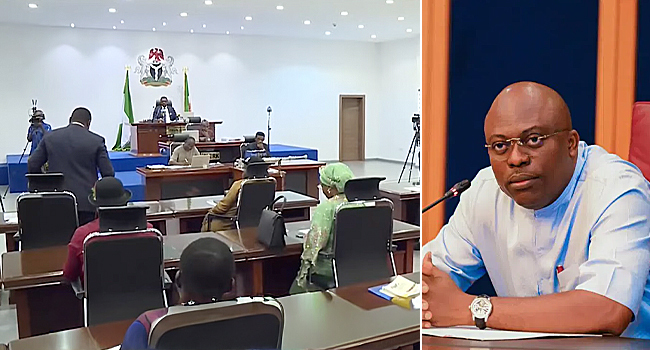Nigeria’s ambitious drive toward clean and sustainable energy through the adoption of Compressed Natural Gas (CNG) as an alternative transportation fuel is gaining significant traction. According to new data from the Secretariat of the Presidential Initiative on Compressed Natural Gas (PCNGI), over $791.49 million in private sector investments were attracted between May and June 2025 alone, pushing the cumulative investment mobilization under the initiative to over $980 million within just 12 months.
This wave of financial commitment is being interpreted as a strong signal of investor confidence in Nigeria’s evolving clean energy ecosystem and the commercial viability of the PCNGI model. The initiative, launched in 2023 following the removal of petrol subsidies, is now considered a linchpin in the government’s broader plan to reduce reliance on imported petrol, cut greenhouse emissions, and ease transportation costs for millions of Nigerians.
According to the PCNGI document released on Wednesday in Abuja, the influx of investment is distributed across conversion infrastructure, logistics, platforms, and kit procurement. Notably, over 100,000 CNG kits have been deployed, and more than 1,440 vehicles have been successfully converted across 20 states. This includes 807 CNG-powered buses, over 5,000 tricycles, and 40 electric buses, demonstrating a diversified approach to clean mobility across different transport categories.
To scale these efforts, the initiative has procured 23,845 CNG kits in 2023, of which 17,346 have been delivered and 16,672 deployed. For 2024, an additional 27,100 kits and 53,000 gas cylinders are in supplier warehouses awaiting delivery. Altogether, the PCNGI aims to convert 125,000 vehicles this year, on the way to a larger target of one million vehicle conversions and 25,000 trained autogas technicians by 2027.
The initiative has also made significant infrastructure headway, with 65 mother refuelling stations and 300 new conversion centres deployed nationwide. Another 260 facilities are at advanced development stages, alongside 175 daughter refuelling stations, 30 of which are now operational. Plans are underway to expand the national footprint into 11 additional states within the next 6–9 months.
Beyond the immediate benefits of cleaner fuel, the PCNGI’s broader vision hinges on economic empowerment and environmental sustainability. According to the Secretariat’s projections, the initiative could result in over 57% reduction in CO₂ emissions and cumulative fuel cost savings exceeding N500 billion if implemented at scale.
The PCNGI also sees the programme as a jobs engine. With a target of 1,000 autogas conversion workshops by 2027, the government anticipates 250,000 vehicle conversions annually and the creation of over 300,000 indirect jobs. So far, more than 5,500 technicians have been trained, and the initiative has rolled out five incentive schemes, including fare reduction, on-lend refuelling models, and consumer subsidies to ease public adoption.
This comes against the backdrop of what the PCNGI described as the “albatross” of fuel subsidies, which cost Nigeria over N1 trillion in 2023. Despite having abundant natural gas reserves, Nigeria continues to import over 75 million litres of petrol daily, the secretariat noted, stressing that this status quo is economically unsustainable.
The PCNGI operates under the Office of the Special Adviser to the President on Energy, and is a product of collaboration between the federal government, private sector partners, state governments, and financiers such as NIPCO Gas and the Federal Ministry of Finance.
To mitigate early adoption risks, the programme emphasizes strict quality control, technology-enabled monitoring, and enforcement mechanisms. “Only one incident during adoption is too much,” the Secretariat warned, pointing to the need for robust safety standards.
In response, the Standards Organisation of Nigeria (SON) has launched new standards for CNG refuelling stations, engine compatibility, and vehicle conversion protocols. Meanwhile, the Nigeria Gas Vehicle Monitoring System is under development to enable centralized oversight and real-time reporting on conversions and usage.
The PCNGI marks a pivotal shift in Nigeria’s energy and transportation policy, placing sustainability, economic resilience, and public welfare at the centre of reform. With over $980 million already mobilized and ambitious infrastructure and job creation goals in place, the initiative appears well-positioned to transform the country’s transport sector.
However, maintaining the current momentum will require policy consistency, stakeholder collaboration, and transparent implementation. As the government battles the twin challenges of fuel cost inflation and climate change, compressed natural gas offers a rare intersection of opportunity, cleaner air, reduced dependency on imported fuel, and a stronger economic future.












